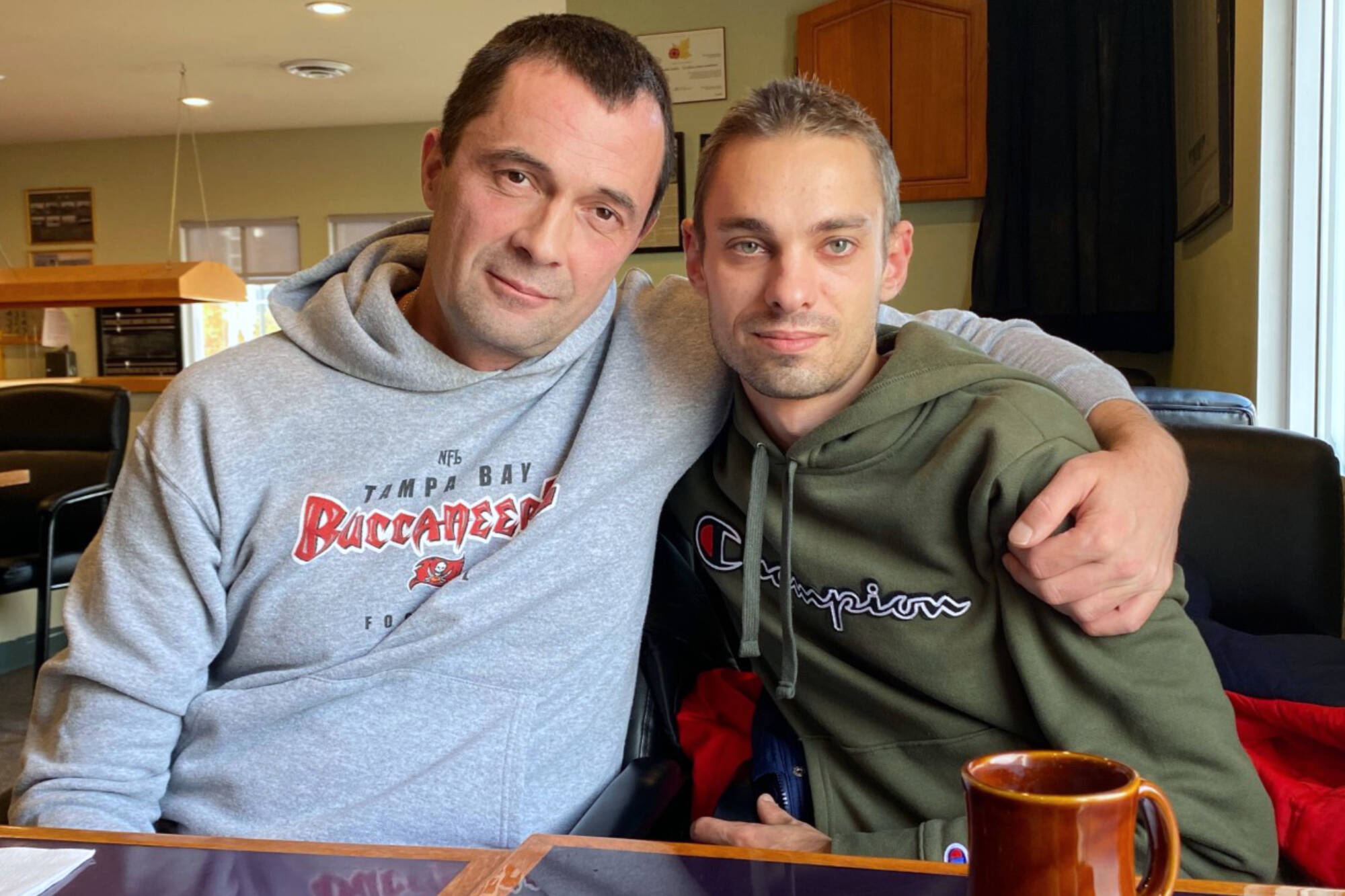By Barb Brouwer
Special to the Observer
When their plane touched down in Montreal in August, Vasyl Davydenko and Dmytro Borovyk felt safe for the first time in several years.
The couple, who now resides in Salmon Arm, believed they had finally emerged from a hellish nightmare they experienced in Ukraine.
Davydenko enlisted in the Ukrainian army to defend the eastern part of the country when Russia attacked Crimea in 2014. In January 2015, under heavy fire and close to an exploding bomb, he suffered back injuries and a concussion and spent six months in hospital.
Discharged from hospital and the army, Davydenko had to fend for himself without a pension or job. So began a period of subsistence living in cellars, stairwells, brothels and shelters.
Davydenko eventually secured a job as a business manager for a mobile company and, in 2019, came out in an interview with Deutsche Welle, a large German network. His decision to be true to himself had immediate repercussions.
“The consequences were not long in coming,” he said, noting he was subject to harassment, spitting, contempt and a severe beating by six young men. “After the internal struggle with my nature, I found myself in a war where the main enemy was snobbery and hypocrisy.”
Borovyk also survived a hellish experience. He had enlisted in the army as a medic and was witness to murder and torture.
“He learned about me when he was in hospital after being wounded,” said Davydenko. “He saw the news on the Internet where one of the stories was about the brutal beating of a soldier who had recently made a coming-out interview.”
Borovyk travelled to Kyiv to meet Davydenko. Now a couple, the pair were required to remain in Ukraine in order to report to an army that did not want them. In 2020 they made their way to Poland, where they managed to acquire low-paying jobs and, after several months in a hostel, were able to rent an apartment.
But management of the quality control company they were employed by were told of Davydenko’s interview and the harassment and humiliation began again.
“Poland is an extremely conservative country where the Catholic Church has a great influence on public opinion and state policy. Thus it was dangerous for us, a same-sex couple, to be there and be ourselves,” said Davydenko, pointing out he and Borovyk were forced to resign.
The pair applied to come to Canada under the auspices of the Canada-Ukraine Authorization for Emergency Travel (CUAET) program, announced by the Department of Immigration, Refugees and Citizenship in March. Under this program, the two have been admitted under a different set of rules and are not considered to be refugees.
Read more: Sicamous residents to welcome family fleeing Ukraine
Read more: ‘They’ve broken the boundaries’: Shuswap residents, groups rally in support of Ukraine refugees
While the federal government has cut a lot of red tape and streamlined the intake process, the program does also include some frustrating complexities. Ukrainian newcomers are permitted to stay for three years, after which they can apply for landed immigrant status if they wish to remain in Canada. Each adult is given a one-time grant of $3,000, a work permit, a health-care card and English language lessons.
The two arrived in Canada with high hopes of gaining employment and becoming self-sufficient as quickly as possible. Davydenko has masters degrees in law and history from Ukraine and Borovyk is the equivalent of a nurse practitioner. Borovyk is working in Save-On Foods and Davydenko is scouring help-wanted ads.
They both want to pursue accreditation of their degrees and gain the necessary qualifications according to Canadian practice by taking correspondence or night courses.
“That tells us that they are willing to commit to learning, to integrate and be contributing members of the community,” said Carole Landry, a Shuswap Support to Ukrainians volunteer, who has been helping the men adjust to their new life in Salmon Arm. “Without support from the group and community, life would be extremely difficult.”
Shuswap Support to Ukrainians provides the newcomers with many of their needs – accommodation, household goods, clothing, support in completing a variety of paperwork, acquiring necessary documentation and getting medical appointments for them. In Davydenko’s case, he is a musician and composer so the donation of a keyboard would be very welcome.
The group is supporting three families at this time, but two more are due to arrive soon and with costs soaring, donations are important, as are additional volunteers. E-transfers can be made to a GoFundMe account at shuswapsupporttoukrainians@gmail.com, or by sending an email to that address to make arrangements for pick-up of cash or cheques.
Visit www.shoreikankarateshuswap.ca/ukraine for more information on the group, the GoFundMe account or to volunteer to help. Volunteers are needed in many capacities and can choose how they would like to be involved.
newsroom@saobserver.net
Like us on Facebook and follow us on Twitter
Sign up for our newsletter to get Salmon Arm stories in your inbox every morning.

